Eleanor Bope(埃莉诺·波培)在一份伦敦早报上看到一则消息:和平委员会认为目前的男孩玩具包含了太多关于战争的元素,虽然这符合他们的好斗天性,但是不应该继续对这种倾向加以鼓励。于是委员会决定举办一个展览来推广“和平的玩具”,这些新型的玩具会以平民形象的模型替代士兵等形象的模型,以各种生产工具模型替代各种武器模型。想到自己的两个儿子,11岁的Eric(埃里克)和9岁半的Bertie(伯特)都非常钟情于各种战争类玩具,埃莉诺请求她的弟弟Harvey(哈维)以这类玩具作为复活节礼物送给她的两个儿子。哈维开始对此建议有所迟疑,因为担心这些新的“和平的玩具”不符合男孩热衷战争游戏的天性,不会引起他们的兴趣,但最后他还是答应尽力这么做,以此作为一次试验——尝试改变这两个孩子对战争游戏的狂热……
文字难度:★★★☆
作者简介:
Saki(萨奇),Hector Hugh Munro(赫克托·休·芒罗,1870—1916)的笔名,英国作家,以其语言凝练优美、诙谐幽默的短篇小说著称。在这些短篇小说中,萨奇讽刺了英国人的生活。他最优秀的短篇小说集包括Reginald(《雷金纳德》)(1904)、Reginald in Russia(《雷金纳德在苏俄》)(1910)、The Chronicles of Clovis(《克洛维斯记事》)(1911)和Beats and Super-beats(《野兽与超级野兽》)(1914)。另在The Westminster Alice(《威斯敏斯特的爱丽丝》)(1902)中收录了很多离奇的政治札记。萨奇在第一次世界大战期间的一次战斗中阵亡。
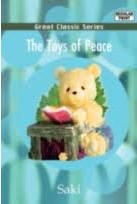 On Easter Saturday Harvey Bope unpacked a large, promising-looking red cardboard box under the expectant eyes of his nephews. “Your uncle has brought you the newest thing in toys,” Eleanor had said impressively, and youthful anticipation had been anxiously divided between Albanian soldiery and a Somali camel-corps. Eric was hotly in favour of the latter 1)contingency. “There would be Arabs on horseback,” he whispered; “the Albanians have got 2)jolly uniforms, and they fight all day long, and all night, too, when there’s a moon, but the country’s rocky, so they’ve got no 3)cavalry.”
On Easter Saturday Harvey Bope unpacked a large, promising-looking red cardboard box under the expectant eyes of his nephews. “Your uncle has brought you the newest thing in toys,” Eleanor had said impressively, and youthful anticipation had been anxiously divided between Albanian soldiery and a Somali camel-corps. Eric was hotly in favour of the latter 1)contingency. “There would be Arabs on horseback,” he whispered; “the Albanians have got 2)jolly uniforms, and they fight all day long, and all night, too, when there’s a moon, but the country’s rocky, so they’ve got no 3)cavalry.”
A quantity of 4)crinkly paper 5)shavings was the first thing that met the view when the lid was removed; the most exciting toys always began like that. Harvey pushed back the top layer and drew forth a square, rather featureless building.
“It’s a 6)fort!” exclaimed Bertie.
“It isn’t, it’s the palace of the 7)Mpret of Albania,” said Eric, immensely proud of his knowledge of the exotic title. “It’s got no windows, you see, so that passers-by can’t fire in at the Royal Family.”
“It’s a municipal dustbin,” said Harvey hurriedly; “you see all the 8)refuse and litter of a town is collected there, instead of lying about and injuring the health of the citizens.”
In an awful silence he 9)disinterred a little 10)lead figure of a man in black clothes.
“That,” he said, “is a distinguished civilian,[1]John Stuart Mill. He was an authority on political economy.”
“Why?” asked Bertie.
“Well, he wanted to be; he thought it was a useful thing to be.”
Bertie gave an expressive 11)grunt which conveyed his opinion that there was no accounting for tastes.
Another square building came out, this time with windows and chimneys.
“A model of the Manchester branch of the [2]Young Women’s Christian Association,” said Harvey.
“Are there any lions?” asked Eric hopefully. He had been reading Roman history and thought that [3]where you found Christians you might reasonably expect to find a few lions.
“There are no lions,” said Harvey. “Here is another civilian, [4]Robert Raikes, the founder of Sunday schools, and here is a model of a municipal[5]washhouse. These little round things are loaves baked in a 12)sanitary bakehouse. That lead figure is a sanitary inspector, this one is a district 13)councillor, and this one is an official of the [6]Local Government Board.”
“What does he do?” asked Eric wearily.
“He sees to things connected with his Department,” said Harvey. “This box with a slit in it is a ballot-box. Votes are put into it at election times.”
“What is put into it at other times?” asked Bertie.
“Nothing. And here are some tools of industry, a 14)wheelbarrow and a hoe, and I think these are meant for [7]hop-poles. This is a model beehive, and that is a 15)ventilator, for ventilating 16)sewers. This seems to be another municipal dustbin— no, it is a model of a school of art and public library. This little lead figure is [8]Mrs. Hemans, a poetess, and this is [9]Rowland Hill, who introduced the system of penny postage. This is [10]Sir John Herschel, the 17)eminent astrologer.”
“Are we to play with these civilian figures?” asked Eric.
“Of course,” said Harvey, “these are toys; they are meant to be played with.”
“But how?”
It was rather a 18)poser. “You might make two of them contest a seat in Parliament,” said Harvey, “and have an election—”
“With rotten eggs, and free fights, and ever so many broken heads!” exclaimed Eric.
“And noses all bleeding and everybody drunk as can be,” echoed Bertie, who had carefully studied one of [11]Hogarth’s pictures.
“Nothing of the kind,” said Harvey, “nothing in the least like that. Votes will be put in the ballot-box, and the Mayor will count them, and he will say which has received the most votes, and then the two candidates will thank him for 19)presiding, and each will say that the contest has been conducted throughout in the pleasantest and most straightforward fashion, and they part with expressions of mutual 20)esteem. There’s a jolly game for you boys to play. I never had such toys when I was young.”
“I don’t think we’ll play with them just now,” said Eric, with an entire absence of the enthusiasm that his uncle had shown; “I think perhaps we ought to do a little of our holiday task. It’s history this time; we’ve got to learn up something about the [12]Bourbon period in France.”
复活节前一天,在外甥们满怀期待的眼神中,哈维·波培拆开了一个看上去充满惊喜的大红纸箱。“舅舅给你们带来了最新出的玩具。”埃莉诺说得激动人心,而男孩们迫不及待猜想着应该是一套阿尔巴尼亚士兵或者是一套索马里骆驼兵队的模型玩具。埃里克热切希望后一可能性会成真,“会有骑在马背上的阿拉伯人,”他低声说道;而伯特则希望是前者:“阿尔巴尼亚人的军服可帅了,他们打整整一天一夜的仗,当时月亮高挂空中,但因为国家道路崎岖,所以他们没有骑兵。”
当盖子打开时,首先映入眼帘的是一些卷起的纸屑。最令人兴奋不已的玩具通常都以那种方式开始显现的。哈维将顶层的纸屑往后拨开,拿出一座方方正正,毫无特色的构筑。
“是一座堡垒!”伯特大声嚷道。
“不是,它是阿尔巴尼亚国王的宫殿,”埃里克说道,他为自己了解外国的一些名称说法感到很自豪。“你看,它一个窗都没有,那么外面的路人就无法往王室的居所开火。”
“这是个市政垃圾箱,”哈维急促地说道,“你们看,所有的垃圾废物都被收集到那里,而不是到处乱扔乱丢,损害市民的健康。”
在一阵可怕的沉寂中,他掏出一个身穿黑衣的铅铸小人模型。
“那个,”他说,“是一位杰出的平民,约翰·斯图尔特·米尔。他是政治经济方面的权威人士。”
“为什么这么说?”伯特问道。
“噢,他想成为那样的人。他认为那种人很有用。”
伯特一声咕哝,绘形绘色地表达出他的观点——人各有志,无从解释。
另一座四方形的模型出现了,这次是个带有窗户和烟囱的。
“这是基督教女青年会曼彻斯特分部的一个模型,”哈维说道。
“那儿有狮子吗?”埃里克满怀希望地问道。他那时候一直都在读罗马历史,以为任何一个能找到基督教徒的地方都应该能发现狮子。
“没有狮子,”哈维说,“这个是另一位平民,叫罗伯特·雷克斯,是‘主日学校’的创办人,而这个是公共洗衣坊的一个模型。这些小小圆圆的东西是在一个很干净的烘房烘焙出来的面包。那个铅铸的小人模型是一名卫生检查员,这个是一名地区议员,而这个则是地方府局的一名官员。”
“他是做什么的?”埃里克厌倦地问道。
“他负责他那个部门相关的事务,”哈维说,“这个带有一个狭长切口的箱子是个投票箱。每逢选举时,选票会被投进这里。”
“那在其他时候,里面会放着什么呢?”伯特问道。
“什么也没有。而这些是各行各业使用的一些工具,一辆手推车和一把锄头。我想这些是做啤酒花支杆用的。这个是蜂箱模型,而那个是通风设备,是给下水道通风用的。这个貌似是另一个市政垃圾箱——但不是,它是美术学院和公共图书馆的一个模型。这个铅铸的小人模型是女诗人希曼斯夫人,而这个是罗兰·希尔,是他提出采用邮票支付邮资这个系统的。这个是著名天文学家约翰·赫歇尔爵士。”
“我们是要用这些人物模型玩游戏吗?”埃里克问道。
“当然啦,”哈维说,“这些是玩具,就是用来玩的。”
“可是怎么玩呢?”
这还真是个难题。“你们挑其中两人来竞选议会里的一个席位,”哈维说,“办一场选举——”
“(选举中)有臭鸡蛋,混战,还有砸破脑袋!”埃里克大声嚷道。
“还有,鼻子都在流血,每个人都喝得烂醉,”伯特随声附和道,他已经细心研究过贺加斯画的一幅画。
“不是那样的,”哈维说,“完全不是你们想的那样。选票会被放入投票箱,市长会计算选票,然后他会宣布谁获得了最多的选票,接下来,两位候选人将感谢他主持了这场选举,每个人都会说这场竞选是以最令人满意、最公开的方式举行的,他们分开时还会表达对彼此的尊重之情。这是个给你们男孩玩的好游戏。我小时候可从没玩过这样的玩具。”
“我想我们现在不会玩这个游戏,”埃里克说道,他的话里一丝他舅舅表现出来的那股热情都没有。“我想,也许我们应该去做一下假期作业。这次的作业是关于历史的。我们得尽可能地去了解一些关于法国波旁王朝时期的事。”
…
It was time, he [Harvey] thought, to go back to the boys’ room, and see how they were getting on with their peace toys. As he stood outside the door he could hear Eric’s voice raised in command; Bertie21)chimed in now and again with a helpful suggestion.
“That is [13]Louis the Fourteenth,” Eric was saying, “that one in 22)knee-breeches that Uncle said invented Sunday schools. It isn’t a bit like him, but it’ll have to do.”
“We’ll give him a purple coat from my paintbox by and by,” said Bertie.
“Yes, and red heels. That is [14]Madame de Maintenon, that one he called Mrs. Hemans. She begs Louis not to go on this23)expedition, but he 24)turns a deaf ear. He takes [15]Marshal Saxe with him, and we must pretend that they have thousands of men with them. The 25)watchword is—26)Qui vive? And the answer is—[16]L’etat c’est moi—that was one of his favourite remarks, you know. They land at Manchester in the dead of the night, and a [17]Jacobite 27)conspirator gives them the keys of the 28)fortress.”
Peeping in through the doorway Harvey observed that the municipal dustbin had been pierced with holes to accommodate the 29)muzzles of imaginary cannon, and now represented the principal 30)fortified position in Manchester; John Stuart Mill had been dipped in red ink, and apparently stood for Marshal Saxe.
“Louis orders his troops to surround the Young Women’s Christian Association and seize the lot of them. ‘Once back at the [18]Louvre, the girls are mine!’ he exclaims. We must use Mrs. Hemans again for one of the girls; she says, ‘Never,’ and stabs Marshal Saxe through the heart.”
“He bleeds dreadfully,” exclaimed Bertie, splashing red ink liberally over the 31)facade of the Association building.
“The soldiers rush in and 32)avenge his death with the utmost 33)savagery. A hundred girls are killed”—here Bertie emptied the remainder of the red ink over the devoted building—“and the surviving five hundred are dragged off to the French ships. ‘I have lost a Marshal,’ says Louis, ‘but I do not go back empty-handed.’”
Harvey stole away from the room and sought out his sister.
“Eleanor,” he said, “the experiment—”
“Yes?”
“Has failed. We have begun too late.”
他[哈维]想,是时候回到男孩们的房间,看看他们和他们的和平玩具“处”得怎么样。当他站在门外时,他能听见埃里克在提起嗓门发号施令。伯特不时附和,出谋划策。
“那位是路易十四,”埃里克说着,“那个穿着齐膝短裤的是舅舅说创办了‘主日学校’的人。一点也不像他真人,但就当是了。”
“我们迟早会用我那颜料盒里的颜料给他涂上一层紫色外衣。”伯特说。
“就是,还要给他的后跟涂上红色。那个当曼特农夫人,就是舅舅说的那位希曼斯夫人。她央求路易取消这次的远征,但路易对此置若罔闻。他带上了萨克斯元帅,我们要假装他们有数千人马出征。暗语是——谁?而答案是——朕即国家——这是他最爱说的话之一,你知道的。他们在夜深人静之时登陆曼彻斯特,詹姆斯二世党的一个谋反者把那座堡垒的钥匙给了他们。”
哈维从门口往里窥视时,发现那个市政垃圾桶被刺了一些洞,当作他们想像中的大炮的炮口,现在,这个垃圾桶代表着曼彻斯特首要的防守阵地。约翰·斯图尔特·米尔全身都是红墨水,他显然在代表着萨克斯元帅。
“路易命令其军队包围基督教女青年会,控制她们。‘一回到卢浮宫,那些女孩都是我的!’他喊道。我们得再一次拿希曼斯夫人来充当其中一个女孩;她说了声‘决不’,接着把刀刺进了萨克斯元帅的心脏。”
“他流了好多血,”伯特边喊边“慷慨”地将红墨水洒在基督教女青年会大楼的外墙上。
“士兵们冲了进去,为他的死报仇,极度残暴。有一百名女孩遇害。”——这时,伯特将剩余的红墨水都洒向了那座被牺牲了的建筑物——“活下来的五百名女孩被拖上了法国船只上。‘我已经失去了一名元帅,’路易说,‘但我不会空手而回的。’”
哈维从房间那头偷偷溜走,去找他的姐姐。
“埃莉诺,”他说,“这个试验——”
“怎么了?”
“失败了。我们开始得太晚了。”


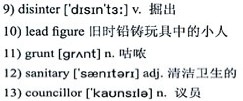
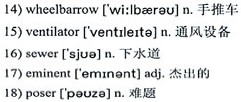
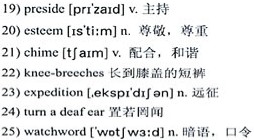
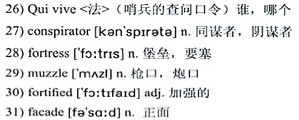


知识链接
[1] John Stuart Mill 约翰·斯图尔特·米尔(1806—1873),英国思想家、哲学家、经济学家、哲学心理学家,实证主义和功利主义的代表人物。
[2] Young Women’s Christian Association 基督教女青年会,起源于1855年英国伦敦(欧洲工业革命时代),由Lady Kinnaird和Miss Emma Roberts创立。
[3] where you found Christians you might reasonably expect to find a few lions 埃里克说这话是因为在罗马帝国时期,基督教被禁,基督教徒被拉去喂狮子,并成为古罗马的一种娱乐。
[4] Robert Raikes 罗伯特·雷克斯(1736—1811),英国一名慈善家,因创办儿童主日学校而闻名。
[5] washhouse 公共洗衣坊,是英国利物浦一名叫Kitty Wilkinson的妇女发明的,该发明促进了贫民窟中穷人的卫生条件改善以及霍乱疾病的控制,并因此拯救了数万人的性命。
[6] Local Government Board 地方府局,简称LGB。1871年,英国地方府局取代济贫法局执行监督职能。
[7] hop-pole 用来支撑蛇麻草生长的长杆。蛇麻草(hop)、橘子皮等是比利时啤酒普遍加入的香料,特别是蛇麻草,这种香料可以凸显啤酒芳香的气味。
[8] Mrs. Hemans 全名为Felicia Hemans,费利西亚·希曼斯(1793—1835),英国十八世纪浪漫主义时期著名女诗人,是拜伦的竞争对手。
[9] Rowland Hill 罗兰·希尔(1795—1879),英国邮政改革家、邮票创始人。
[10] Sir John Herschel 约翰·赫歇尔爵士(1792—1871),著名天文学家、数学家、化学家及摄影师,天文学家威廉·赫歇尔的儿子。
[11] Hogarth 全名为William Hogarth,威廉·贺加斯(1697—1764),英国著名画家、版画家、政治讽刺漫画大师,欧洲连环漫画的先驱之一。
[12] Bourbon 波旁王朝,是一个在欧洲历史上曾断断续续地统治过纳瓦拉、法国、西班牙、那不勒斯与西西里、卢森堡等国的跨国王朝。
[13] Louis the Fourteenth 法国国王路易十四(1638-1715),在法国,因为他使法国强大而受到尊敬,曾经演出希腊神话中的太阳神“阿波罗”,因而被后世尊称为“太阳王”。
[14] Madame de Maintenon 曼特农夫人(1635-1719),路易十四的情妇,在他们情人关系维持了11年后,路易十四秘密娶其为妻。
[15] Marshal Saxe 萨克斯元帅(1696-1750),十八世纪法国著名将领,著有《战争艺术论》。
[16] L’etat c’est moi <法> 法国国王路易十四的一句名言,译成英语是:“I am the State.”或“The State, it’s me.”(朕即国家。)
[17] Jacobite 詹姆斯二世党的人。英国詹姆斯二世被光荣革命推翻后逃亡至法国,投奔路易十四。次年他率领法国援军在爱尔兰登陆,后战败,再次流亡法国。
[18] Louvre 卢浮宫,位于法国巴黎,现为国立美术博物馆,是全世界最大的博物馆之一,曾为法国王宫。
